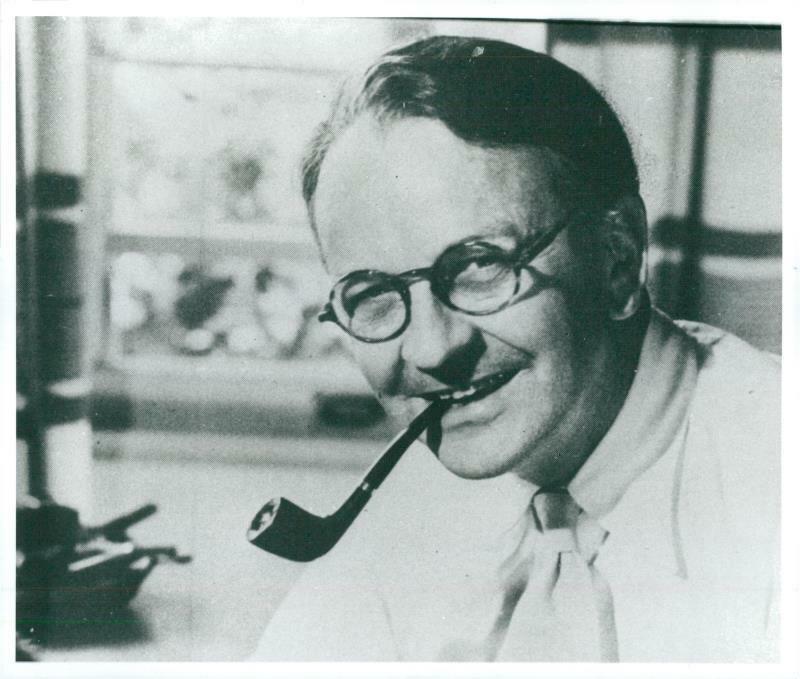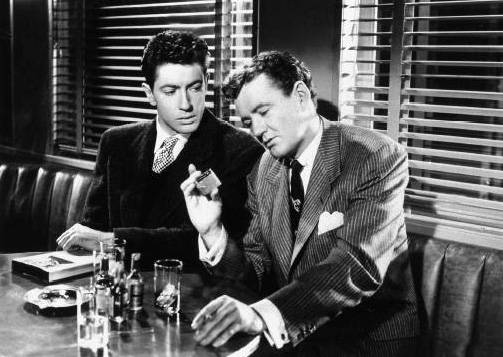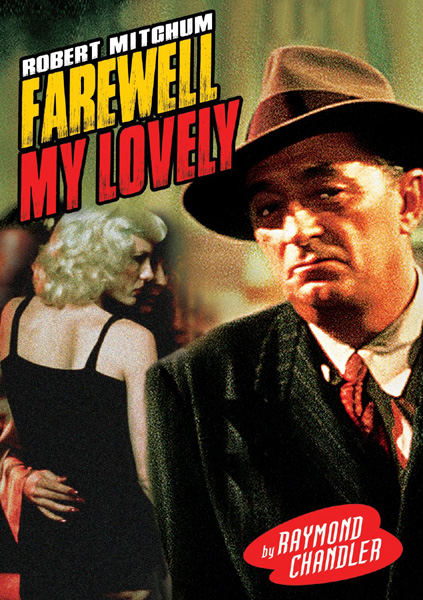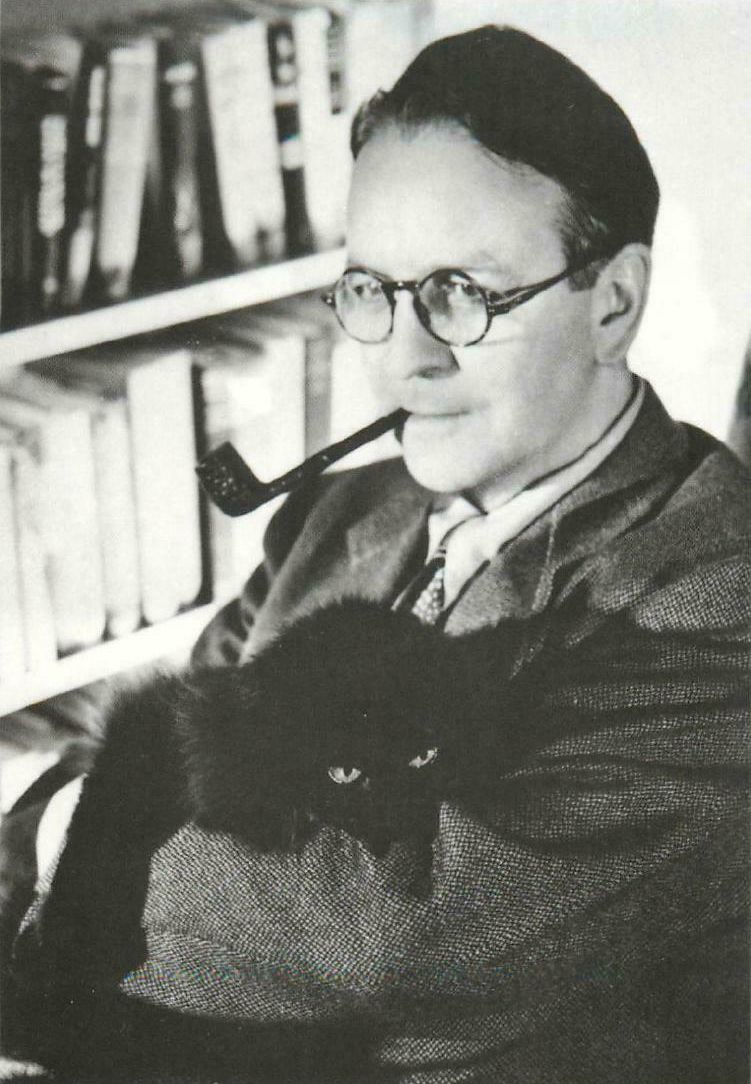Happy Birthday, Raymond Chandler!
Posted by Ivan G. Shreve, Jr. on Jul 23rd 2019
For all his success in the literary world, and then later in Hollywood, author Raymond Thornton Chandler was a lonely man. He lived the life of a recluse; he left no surviving wife or children upon his passing in 1959 and had himself been an only child when he entered this world on this date in 1888 in Chicago. Those attempting a biography of his life have often found that their best source of information were the many letters that he wrote, spoken into a Dictaphone late at night for his secretary to type up in the morning. (Ray rarely wrote fiction in the wee hours, believing his nocturnal efforts to be too “ghoulish.”) It’s uncomfortable to start such an essay on a note of melancholy, I know, but it helps us to understand his famous literary creation Philip Marlowe — Chandler once observed that he saw the P.I. “always in a lonely street, in lonely rooms, puzzled but never quite defeated” — and why Time magazine once dubbed Chandler “the poet laureate of the loner.”
Life in the Windy City for Raymond Chandler as a child began in a rented
house, followed by a series of cheap hotel rooms and then a residency in
Nebraska, staying with relatives. Chandler’s father Maurice was both an
itinerant rail engineer and an alcoholic (a condition that would plague Chandler
in later years),and he eventually abandoned his son and wife Florence. Ray and
his mother moved to Ireland in 1895 (Flo was Irish-born). To ensure
her son received the best education, the Chandlers eventually relocated to the
London borough of Croydon where Ray attended Dulwich College, a public school that also claimed as alumni P.G. Wodehouse
and C.S. Forrester. Raymond’s uncle was not prepared to pay for his
nephew to attend university, choosing instead to pull him out of Dulwich a year early so that Chandler could attend tutorial colleges in
France and Germany to prepare him for the British Civil Service examination.

Raymond Chandler was naturalized as a British citizen in order to enter
the Civil Service (he kept that citizenship until 1956) and obtained a job
with the British Admiralty in the office of munitions. Ray loathed the
job, quit after a few months, and for the next five years eked out a living
writing poetry for literary magazines. Chandler would eventually emigrate
to the U.S. in 1912 (with money borrowed from his uncle, who had refused to
subsidize his “ward” any longer) and find work in various odd
jobs (including fruit picking and tennis
racquet-stringing). Ray served a hitch with the Gordon Highlanders
(a Scottish regiment that he had to join by traveling to Canada) during the First
World War. Upon being mustered out, he returned to
California to secure a position with the state’s booming oil industry…that
is, after he married a twice-divorced ex-model named Pearl Eugene “Cissy”
Pascal.
There is speculation that Raymond Chandler was unaware that
his wife Cissy was seventeen years his senior when they tied the
knot. (She was often mistaken for his mother.) Be that as it may,
the couple moved around to various L.A. residences over the years during
Chandler’s time with the oil company, which would eventually fire him
in 1932 for drunkenness. Ray then decided to go back to writing to keep
the wolf at the door at bay and credited the prolific prose of Erle Stanley
Gardner as his inspiration. Chandler’s freshman contribution to the pulp
fiction Black Mask magazine, “Blackmailers Don’t
Shoot,” was published in 1933. His first novel featuring private
investigator Philip Marlowe, The
Big Sleep, was published in 1939. This was followed by a
second Marlowe book, Farewell,
My Lovely, in 1940.
Farewell, My Lovely would be
adapted for the silver screen in 1942 as a George Sanders Falcon movie (The Falcon Takes Over) and again two years later as Murder, My Sweet with Dick Powell playing the role of Marlowe. The success of
the latter film would get Raymond Chandler work as a screenwriter; the author
co-wrote And Now Tomorrow (1944) with Frank Partos (based on Rachel Field’s novel). Chandler received an Academy
Award nomination for Best Screenplay for his collaboration with director Billy
Wilder on Double
Indemnity (1944; Wilder freely acknowledged that much of that
movie’s memorable dialogue was all Chandler). Ray’s Hollywood
success allowed him to buy a luxurious house near San Diego.
Chandler would garner a second Oscar nomination for The Blue Dahlia (1946), which started out as an early manuscript for one of the
author’s books until he was persuaded to transform it into a screenplay.
However, Ray hadn’t yet progressed far enough to write a denouement, and he
told producer John Houseman that the only way he could complete it was to get
good and drunk. It would be Chandler’s sole original effort for the
silver screen. His remaining film work (apart from adaptations
of Marlowe novels like The Big Sleep, The Lady in the
Lake, and The High Window) was on 1951’s Strangers on a Train. He collaborated on this with director Alfred Hitchcock.
Raymond did not enjoy the assignment (he thought Patricia Highsmith’s
novel implausible). In addition, the two men made disparaging remarks
toward one another and were not even on speaking terms by the time the
movie was completed.

Strangers on a Train would
be the subject of Lux
Radio Theatre broadcasts in 1951 and 1954, and several other Raymond Chandler
works would be broadcast over the ether, including And Now Tomorrow and Murder,
My Sweet. Chandler short stories such as “Pearls are a
Nuisance” and “Murder in the City Hall” were showcased on programs like Suspense and The
Molle Mystery Theatre. But Ray’s lasting contribution to radio was based on the gumshoe
who put groceries on his table: The Adventures of Philip Marlowe was first heard over NBC on June 17, 1947. This initial version only
lasted the summer (it was filling in for a vacationing Bob Hope), but it returned
in the fall of 1948 over CBS. It ran for two seasons on this network, and
then enjoyed one final summer season in 1951 (while Hopalong Cassidy got a little R&R).
Cissy Chandler died in 1954, and her passing left Raymond Chandler
inconsolable. He would continue to eke out a forlorn existence drinking
and writing. (Four chapters of an unfinished novel, Poodle Springs, would later be finished by author Robert B. Parker and published
in 1989.) Ray tried to commit suicide in 1955 and spent some time in
a psychiatric hospital as a result. Chandler looked for respite
in England the late 50s, before returning to the U.S. He
succumbed to pneumonial peripheral vascular shock at the age of 70. Raymond had wanted
to be interred next to his wife. (Her remains had lingered in a
storage locker at Cypress View Mausoleum, because a heartbroken Chandler
neglected to make the necessary arrangements.) They wouldn’t be reunited
until 2011, after the estate received permission from a judge in 2010.
Their shared gravestone reads: “Dead men are heavier than
broken hearts.” (This is, of course, a quote from The Big Sleep).

Many screen actors stepped into the (gum)shoes of Philip Marlowe to play our birthday boy’s famous sleuth (including Humphrey Bogart and Robert Montgomery), but Robert Mitchum did it twice—with Farewell, My Lovely in 1975 and The Big Sleep three years later. Both of these movies are available on DVD from Radio Spirits, as are our popular CD collections featuring vintage broadcasts from The Adventures of Philip Marlowe: The Adventures of Philip Marlowe, Lonely Canyons, Night Tide, and Sucker’s Road. (There’s a Marlowe adventure on our Great Radio Detectives set, too). Creator Chandler wasn’t a fan of the Marlowe radio series—in a 1949 letter to a friend he cracked that it was “about as sadistic as a frosted marshmallow sundae”—but maybe he wasn’t the best judge of what we believe to be an unmistakable classic? (Get this and get it straight, Raymond…happy birthday!)

